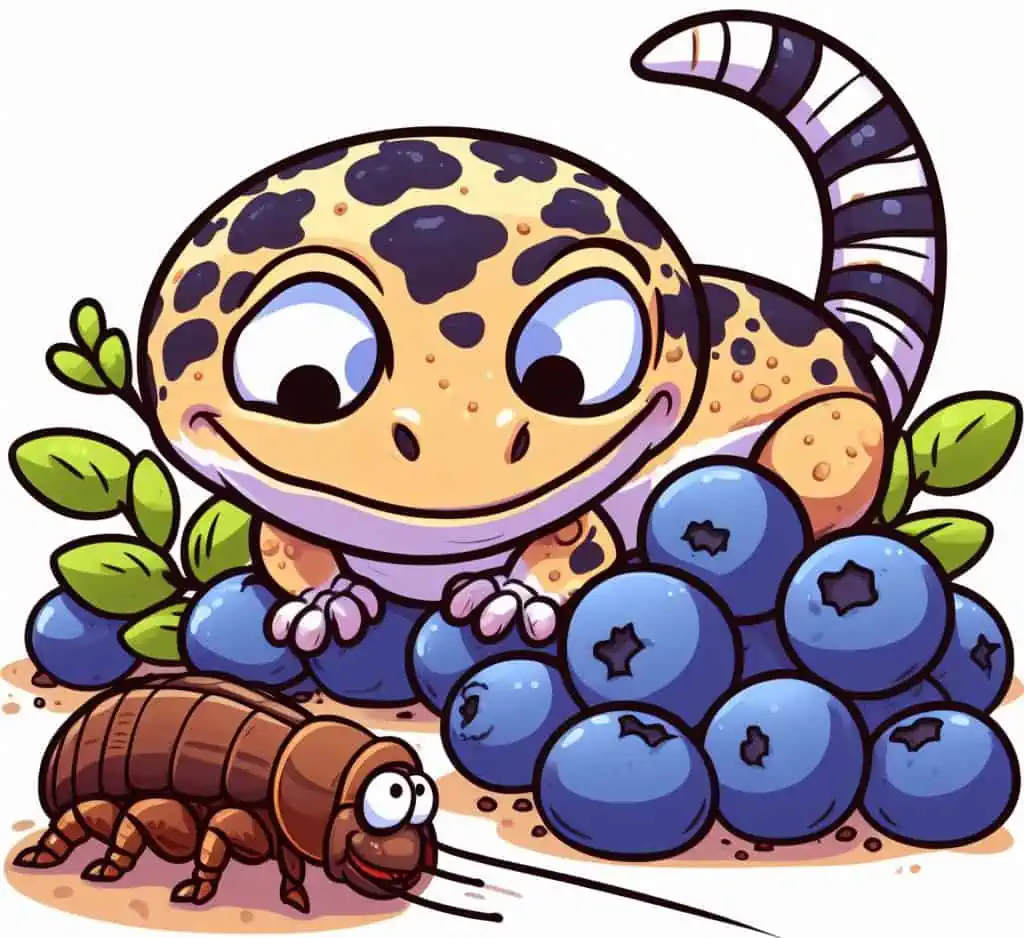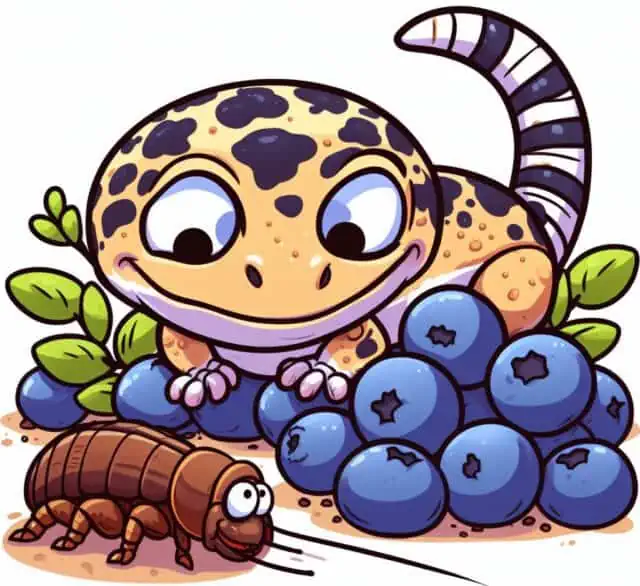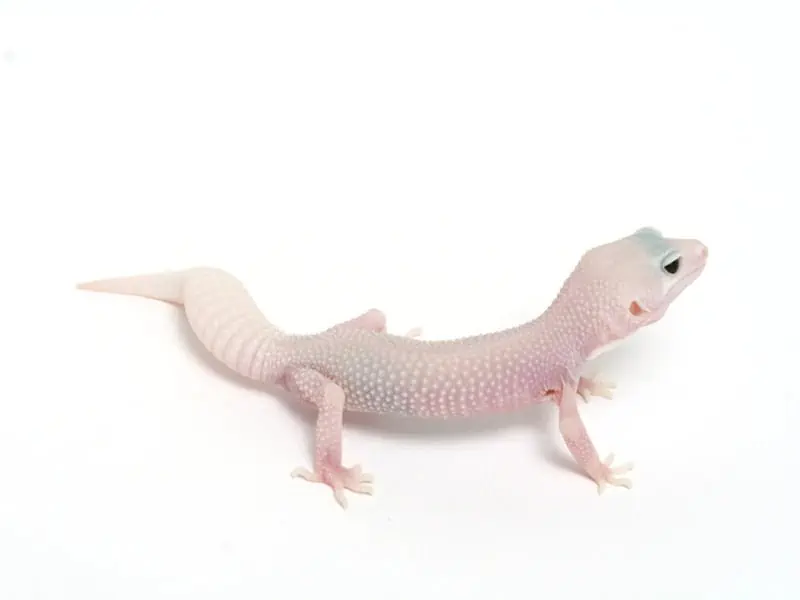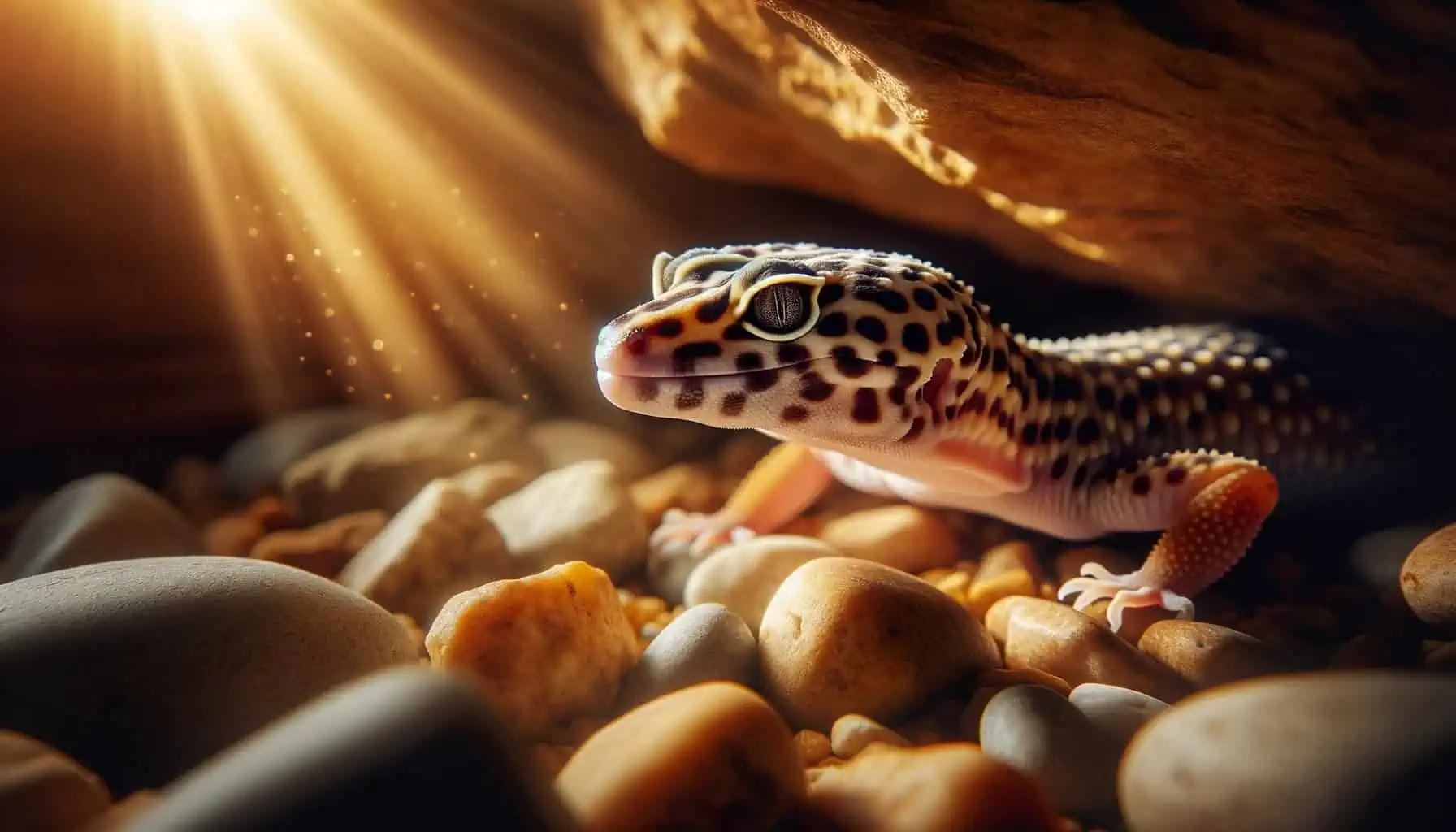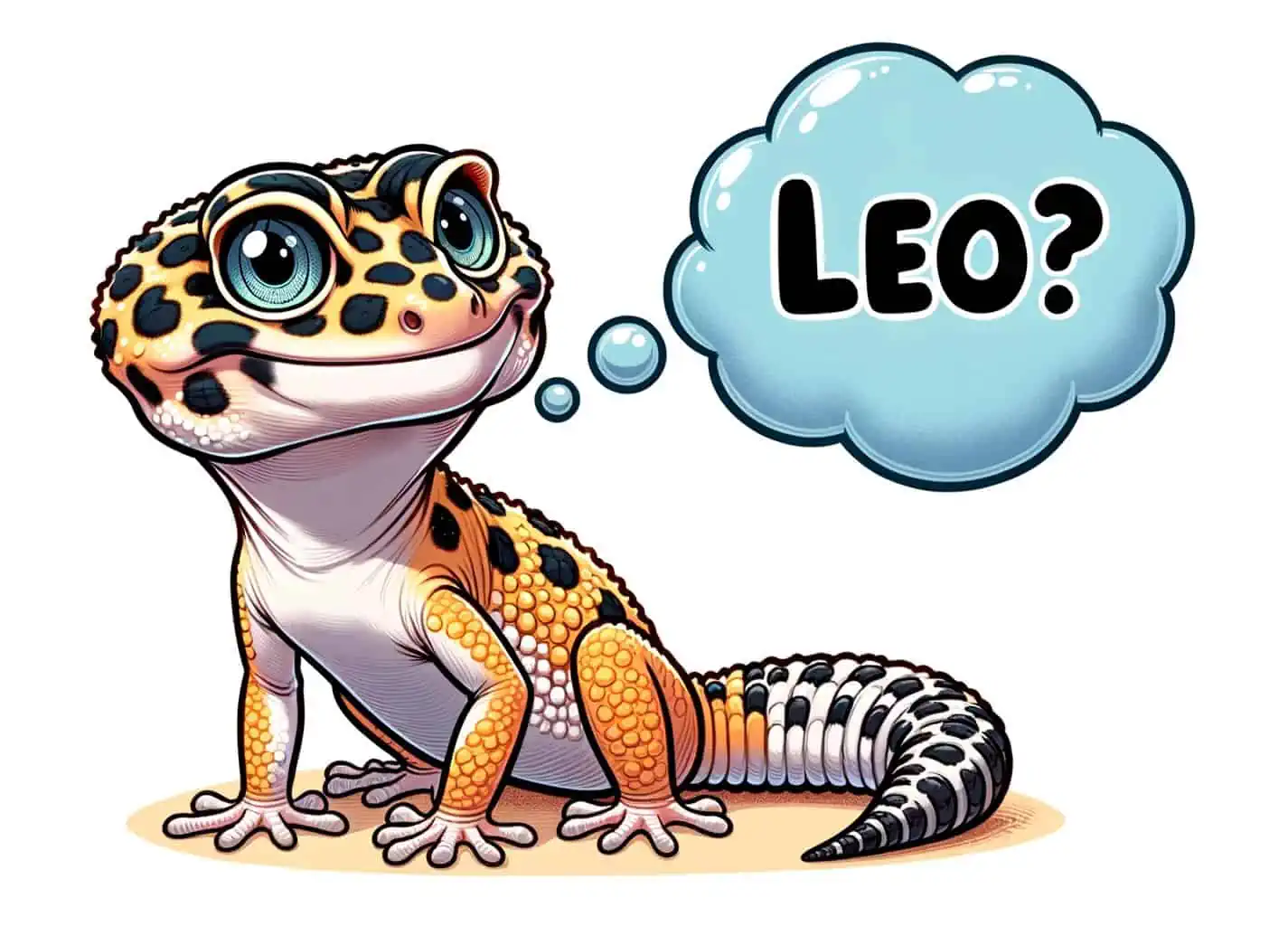Leopard Geckos can’t eat blueberries or any other type of fruit because they are insectivores. This might come as a surprise to many. After all, aren’t most reptiles open to a variety of diets? Well, not leopard geckos. While blueberries are tasty and nutritious for us, they’re not a good idea for these little reptiles. Their anatomy and natural diet preferences are specially tuned for munching on insects, not fruits.
Diet Restrictions: Leopard geckos are insectivores by nature, meaning their primary diet should consist of insects like mealworms, crickets, and dubia roaches. Fruits, including blueberries, are not a natural part of their diet and can cause health issues.
Anatomy Matters: Their digestive systems, which include small jaws, sharp teeth, a short tract, and an alkaline gastrointestinal environment, are uniquely suited to processing insects. They’re not designed to handle the sugars and cellulose found in fruits.
Consequences of Fruit Consumption: If a leopard gecko consumes fruits, they might face issues ranging from dental problems (like plaque buildup) to digestive distress such as bloating, cramps, and diarrhea.
Why Leopard Geckos Can’t Eat Blueberries
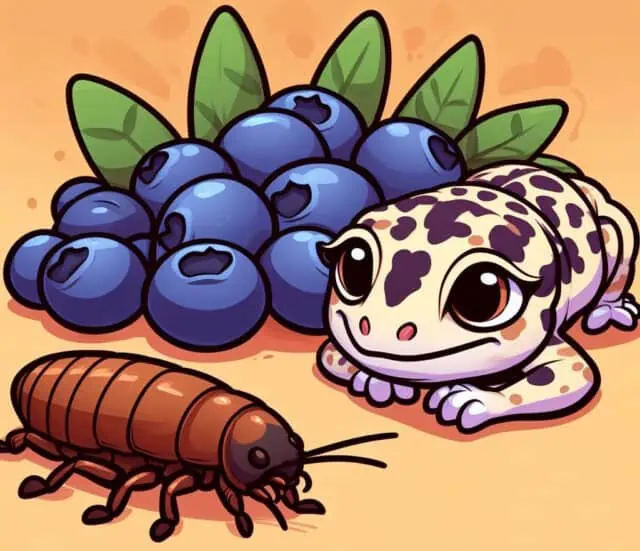
Ever wondered why some animals can eat almost anything, while others have such specific diets? Leopard geckos are one such fascinating example. While they might look like they’d enjoy a juicy blueberry or two, their body tells a different story. Their anatomy, from the way their jaws are structured to the type of digestive system they have, makes them uniquely adapted to an insect-centric diet.
Small Jaws and Sharp Teeth
When you look closely at a leopard gecko’s mouth, you’ll notice it’s quite different from many other animals. First, they have small jaws. These jaws aren’t made for munching on tough foods or breaking down fibrous fruits. Instead, they’re perfectly tailored for their primary diet: insects.
Their sharp teeth aren’t for tearing into blueberries or any fruit, for that matter. They are razor-like, designed for slicing through insects with ease. Imagine trying to use a scalpel to mash potatoes; it’s not the ideal tool for the job. Similarly, these sharp teeth face difficulty with mushy and stringy fruits.
Their Digestive Tract Is Short
The digestive system of a leopard gecko is another clue into their dietary preferences. Specifically, they have a notably short digestive tract. Why does this matter? A longer digestive tract, like the ones found in herbivores, allows more time to break down complex plant materials. It gives the body the opportunity to extract all the necessary nutrients from fruits, vegetables, and other plant-based foods. On the other hand, the short digestive tract in leopard geckos is efficient at quickly processing their primary food source: insects.
What’s more, leopard geckos lack the essential enzymes to tackle cellulose, the primary component in plants. Cellulose digestion is a slow process, requiring specific enzymes and a longer transit time in the digestive system. Without these enzymes, and without a cecum – an organ many herbivores have to aid in this process – leopard geckos simply can’t break down and extract nutrients from plant matter effectively.
Alkaline Gastrointestinal Tract
The pH level of an animal’s gastrointestinal tract is a crucial aspect of its digestion and overall health. In the case of leopard geckos, they possess an alkaline gastrointestinal tract. But what does this mean, and why is it significant? The pH scale measures how acidic or alkaline a substance is. While acidic substances have a pH value below 7, alkaline ones register above 7. The more alkaline a system is, the better it can digest animal proteins.
Leopard geckos, with their alkaline digestive system, are tailor-made for processing animal proteins found in their natural diet of insects and worms. This alkalinity aids in the efficient breakdown of these proteins, ensuring that the gecko gets all the nutrients it needs.
On the flip side, an acidic digestive environment would be counterproductive for these reptiles. While it might be suitable for breaking down plant matter, an overly acidic system in leopard geckos can lead to health issues. It could disrupt their natural digestion process, leading to malabsorption of nutrients and other digestive complications.
They Lack a Cecum
An integral part of the digestive system in many animals, especially herbivores, is the cecum. This pouch-like organ plays a pivotal role in breaking down plant matter. However, leopard geckos, being the specialized creatures they are, lack a cecum entirely. The absence of this digestive organ speaks volumes about their natural dietary preferences and capabilities.
In herbivores, the cecum is teeming with helpful bacteria. These bacteria are essential as they assist in fermenting and digesting cellulose from plant-based foods. Without these bacteria and the cecum, breaking down plant matter becomes a herculean task. It’s like trying to unlock a door without the right key. Given that leopard geckos don’t have this “key”, it becomes clear why fruits like blueberries aren’t a part of their natural diet.
What Happens If A Leopard Gecko Eats Blueberries or other Fruit?
We’ve established that leopard geckos are not naturally inclined to eat fruits, but what happens if, out of curiosity or by accident, they consume something like blueberries or peaches? The results, unfortunately, aren’t pleasant. While these fruits might be nutritious and beneficial for humans and some other animals, for leopard geckos, they can bring about a range of health concerns.
One of the first issues that can arise is dental health problems. Unlike us, leopard geckos aren’t equipped to handle the sugars found in fruits. Over time, these sugars can lead to plaque buildup on their teeth. If left unchecked, this plaque can develop into cavities or even cause their gums to become irritated.
But the repercussions don’t stop at their mouths. Their digestive systems, as we’ve explored, aren’t designed to handle fruits. Consuming blueberries, lettuce, peaches, or other fruits and vegetables can lead to uncomfortable and even painful digestive issues. Bloating, cramps, and gas are some initial signs of digestive distress. In more severe cases, a leopard gecko might experience diarrhea, making them prone to dehydration, or constipation, which can be painful and stressful for the animal.
What Should Leopard Geckos Eat Instead?
Navigating the dietary needs of a leopard gecko can be a bit of a maze, especially with the myriad of food options available. However, the golden rule to remember is to lean into their natural inclinations as carnivores. This means that the staple of a leopard gecko diet should predominantly be insects.
Some excellent choices for leopard geckos include mealworms, crickets, and dubia roaches (while others like cicadas can carry some risks). These insects are not only easy for them to hunt and digest, but they also provide the necessary nutrients and proteins that keep geckos healthy and active. It’s essential to ensure that these insects are gut-loaded, meaning they’ve been fed nutritious foods before being given to the gecko. This enhances the nutritional value the gecko gets from consuming them.

